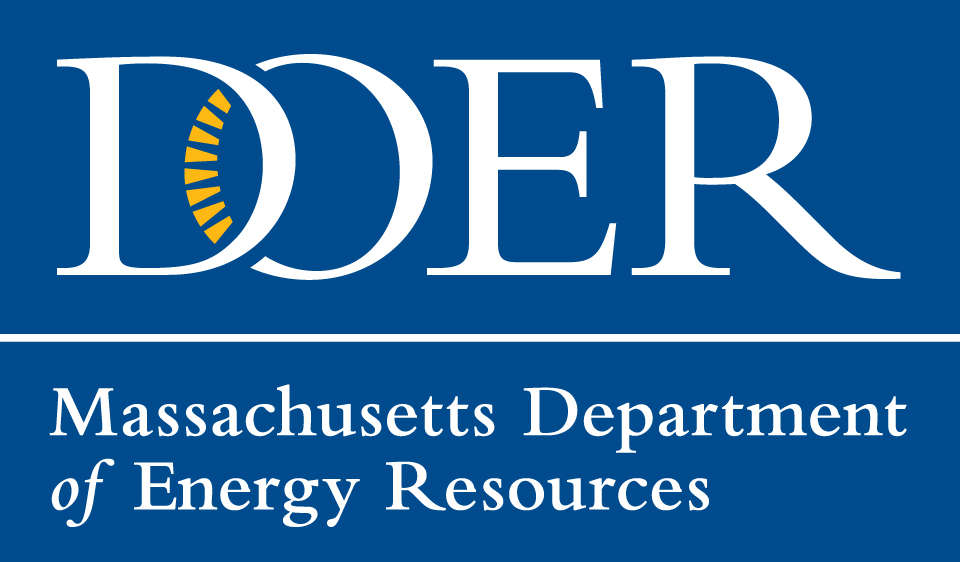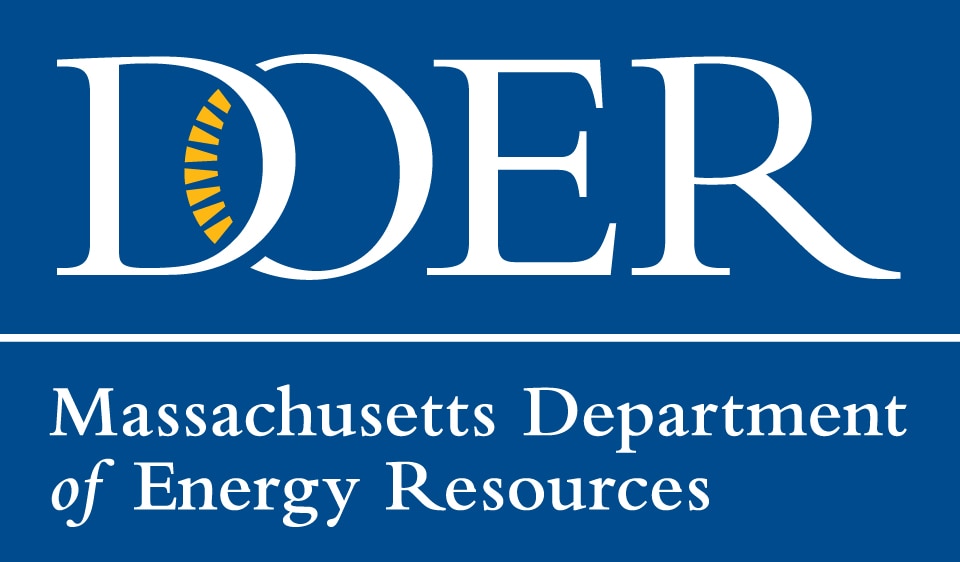- Massachusetts Department of Energy Resources
- Energy Efficiency Division
Media Contact
Lauren Diggin, External Affairs Manager
Boston — The Healey-Driscoll Administration today announced it submitted a full application for both the Home Efficiency Rebates and Home Electrification and Appliance Rebates programs under the Inflation Reduction Act’s Home Energy Rebates in order to receive formula funding from the U.S. Department of Energy (DOE). The Massachusetts Department of Energy Resources (DOER) will implement the programs and expects to begin offering programs over the next year.
The federal funds allocated to Massachusetts are: $73 million for Home Efficiency Rebates and $72.8 million for Home Electrification and Appliance Rebates. The programming developed for these applications will support residents living in municipalities with Municipal Light Plants and supplement Mass Save® and DOER’s Affordable Housing Decarbonization Grant Program. The submission of these applications marks an important next step in the process to unlock these rebates for Massachusetts residents.
“The Inflation Reduction Act’s Home Energy Rebates will help Massachusetts expand our nation-leading energy efficiency programs and further support housing affordability and our fight against climate change,” said Governor Maura Healey. “These rebate programs will help lower monthly energy bills, provide health benefits, and expand access to modern heating, cooling and cooking appliances for families across Massachusetts.”
“I’ve seen firsthand the positive impact Massachusetts’ energy efficiency programs have in our communities, and we appreciate this federal investment,” said Lieutenant Governor Kim Driscoll. “The Home Energy Rebate Programs will help deliver the cost savings and health benefits of energy efficiency and electrification to an ever-growing number of families throughout the state, and the increased demand for these programs will support our clean energy workforce.”
This additional federal funding for energy efficiency measures will complement Massachusetts’ nation-leading, multi-billion-dollar energy efficiency programs. This includes the Mass Save program that currently offers no-cost home energy assessments and decarbonization consultations. The Mass Save program provides robust incentives to support heat pumps and weatherization, with many of these services provided to income-qualifying renters and homeowners at low or no-cost.
Additionally, in April 2024, the Commonwealth announced a new $20 million Energy Saver Home Loan Program to help low- and moderate-income homeowners make clean energy improvements that cut energy usage and greenhouse gas emissions. The new loan program will provide flexible financing for a wide range of residential clean energy projects that support emissions reduction and healthier homes.
“The Inflation Reduction Act provide us with a unique opportunity to kickstart the next chapter of our clean energy transition, increase the demand for skilled workers in good-paying jobs, and lower harmful emissions across Massachusetts,” said Energy and Environmental Affairs Secretary Rebecca Tepper. “The Home Energy Rebates will boost the energy efficiency and electrification incentives available to the families impacted the most by high energy costs and climate change. We’re also able to give municipal light plant customers increased access to energy-efficient appliances and home energy improvements.”
“The IRA’s Home Energy Rebates will help expand access to Massachusetts’ nation-leading energy efficiency programs for a greater number of income-qualifying families and build out municipal light plant programs so more customers enjoy long-term energy cost savings and more comfortable, healthier living spaces,” said Department of Energy Resources Commissioner Elizabeth Mahony. “As Massachusetts decarbonizes its buildings sector, efficiency and electrification rebates, combined with our building energy codes and federal tax credits, will be the key to meet our climate goals and reduce our heating and cooling energy demand, which will make our electric grid more resilient and lower costs for ratepayers.”
“This critical funding enables Massachusetts residents to experience the historic impact of the Inflation Reduction Act right at home,”said Quentin Palfrey, Director of Federal Funds and Infrastructure. “We look forward to continuing to work with the Department of Energy to bring these cost-saving, climate-friendly energy solutions to Massachusetts households.”
Home Efficiency Rebates
The DOE will award grants for Home Efficiency Rebates (HER) to state energy offices like DOER to provide rebates that discount the price of energy-saving retrofits in existing single-family and multi-family buildings. Upgrades must be predicted to save at least 20 percent of the home’s energy use. DOER plans to implement HER through a new and an existing program.
The new program, called the MLP-HER program, is designed for residential customers of the 40 Municipal Light Plant (MLP) cities and towns in Massachusetts that do not currently participate in Mass Save. The MLP-HER program will serve 1-4 unit homes and households of all income levels and support the electrification of space heating and weatherization of existing homes along with other additional energy efficiency measures. DOER will continue to engage with the public to solicit feedback as program details are developed.
The existing program that HER funds would be used for, DOER’s Affordable Housing DecarbonizationGrant Program, helps affordable rental housing in existing buildings decarbonize and electrify. The first round of project awards under this program funded deep energy retrofits and energy efficiency upgrades, building system electrification, and onsite renewable energy generation for more than 700 homes in 10 affordable housing developments across Massachusetts. Properties eligible for this program are majority deed-restricted rental affordable housing units. Housing authorities, non-profits, or private property management companies are encouraged to apply for funding. A program opportunity notice will be posted soon on COMMBUYS, the Commonwealth’s procurement system.
Home Electrification and Appliance Rebates
The DOE will award grants for Home Electrification and Appliance Rebates (HEAR) to state energy offices to develop and implement a high-efficiency electric home rebate program for low- and moderate-income residents.
DOER plans to implement HEAR by integrating the federal funding into Mass Save programs, and HEAR rebates will be delivered through two Mass Save programs:
- The long-standing Income Eligible Program, which serves single-family households at or below 60 percent State Median Income (SMI) and multi-family households at or below 60 percent Area Median Income (AMI).
- The newly expanded Enhanced Residential Offers, which provides enhanced rebates and services to households in the income range of 61-80 percent AMI.
Integrating HEAR into Mass Save will lower administrative costs, allow more funding to be available to residents, enable Mass Save to serve many additional customers, and provide rebates for 100 percent of the total project cost of eligible electrification measures for households below 80 percent AMI. HEAR rebates will help expand access for heat pumps, home electrical system upgrades, and other electrification appliances to low- and-moderate income residents.
“DOER has shown itself time and again to be on the leading edge of Massachusetts’ decarbonization efforts, and I commend the department for submitting strong applications to leverage $146 million in federal funding for existing and new rebate initiatives,” said State Representative Jeffrey N. Roy, House Chair of the Joint Committee on Telecommunications, Utilities and Energy. “Their strategic proposals will help drive down the costs of residential retrofits, including a new program for municipal light plant communities, and provide critical rebates to low- and moderate-income customers to switch to high-efficiency electric appliances. These proposals will help make building decarbonization, which is a critical piece of the Commonwealth’s energy transition strategy, accessible for a broader range of residents.”
“Residents of towns and cities served by municipal light plants — Concord, Reading, Taunton, and so many others — will be able to share in the program. This balances with incentives available elsewhere in Massachusetts,” said State Senator Michael J. Barrett, Senate Chair of the Joint Committee on Telecommunications, Utilities and Energy. “We’re spreading the benefits and enabling more people to improve their homes.”
“Mass Save programs combined with federal funding are a powerful tool to help moderate- and low-income customers benefit from participation in energy efficiency and decarbonization efforts,” said the Sponsors of Mass Save. “We thank the DOER both for securing these funds and for their leadership as we work together to meet the state’s decarbonization goals. Our collaboration and close partnership will allow Mass Save programs to continue expanding and provide customers more opportunities to take part in an equitable energy transition across Massachusetts.”
Leading up to its application, DOER conducted stakeholder outreach to obtain public input on the design of Massachusetts’ IRA Home Energy Rebate programs. In early 2023, DOER solicited and received public input that helped inform Massachusetts’ response to the DOE’s Request for Information on Inflation Reduction Act Home Efficiency & Electrification Rebate Programs. In March of 2024, DOER held a public input session and solicited written comments on its HER and HEAR straw proposal. DOER will need to complete further program implementation design as part of the application process with DOE and will continue to leverage public and stakeholder input to develop an effective and beneficial program design.
For more information, please visit DOER’s website or sign up for DOER’s mailing list to stay up to date on future information about the IRA Home Energy Rebates.
###

